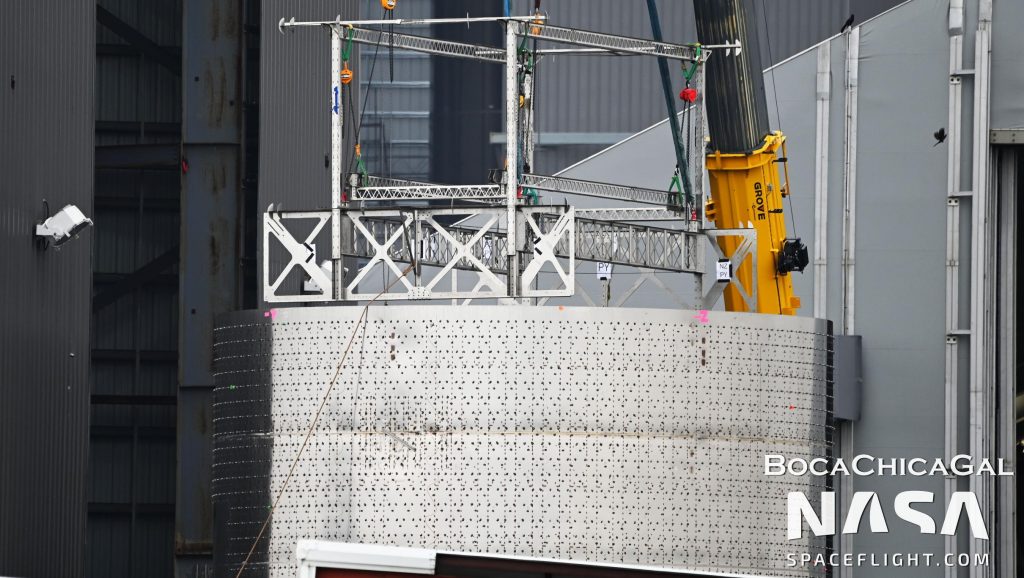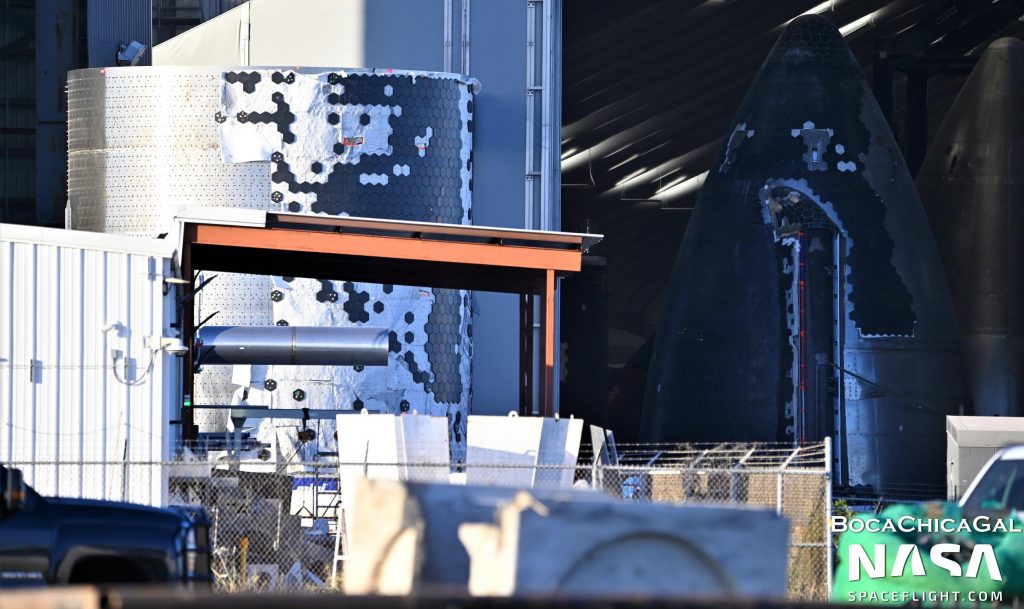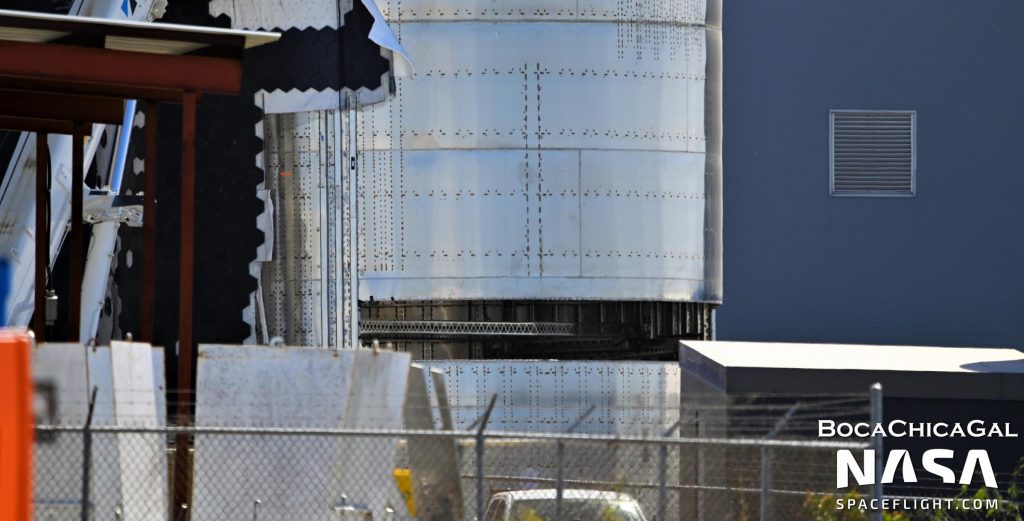- Quick Look at the 2020 Volkswagen Atlas Cross Sport | MotorTrend - March 13, 2024
- BMW Design – 2009 BMW Z4 – 2009 Detroit Auto Show - March 11, 2024
- Top 10 Car Features Women Love - October 7, 2023
After several weeks of work and occasional glimpses of the hardware and installation process, it’s now clear that SpaceX has outfitted part of its next Starship prototype with a truly unique Starlink satellite dispenser.
It remains to be seen if this particular assembly is simply a pathfinder – an experiment never meant for flight – or an integral part of a prototype that could become the first Starship to reach space or even orbit. In the first few months of 2022 a slightly different pathfinder was also quickly assembled but was ultimately moved to the scrapyard. The latest prototype is quite different.
First, the device installed inside what appears to be the steel rings Starship S24’s nosecone will eventually be stacked on top of is almost nothing like any satellite deployment adapter observed in the past or present. The rectangular framework SpaceX craned inside of the barrel-like section of five steel rings – a cylinder measuring around 9m x 9m (30 ft x 30 ft) – about two weeks ago looked rudimentary and lacked any obvious moving parts, generating some ambiguity. Based on its apparent dimensions, the frame could likely extend anywhere from 10-15m (30-50 feet) up into Ship 24’s nosecone before the diameter would get too narrow for it to continue.
If it was a satellite deployment adapter, which most expected it to be, it was nothing like any other common adapter – including SpaceX’s own unusual present-day Starlink deployment method. It wasn’t until March 24th that SpaceX spun the nose barrel around, revealing an unusual cutout akin to a giant mail slot. At that point, it became clear that Ship 24’s nose had been fitted with a Starlink satellite deployment mechanism akin to a giant PEZ dispenser.



Instead of a large, alligator-like payload bay, all Starship would need is a comparatively tiny slot and either an active or passive mechanical deployment mechanism. Starlink satellites would first be loaded one by one into the slot and somehow lifted inside the bay on the rail-like frame SpaceX recently installed. Eventually, that dispenser would be filled with a stack of an unknown number of Starlink satellites – likely larger Starlink V2 prototypes but possibly today’s smaller V1.5 satellite variant. Once in orbit, the stack of satellites would be ejected one by one through Starship’s payload slot. The satellites could potentially be passively fed down to the slot with a tension mechanism or Starship’s maneuvering thrusters, reducing the dispenser’s complexity.
Crucially, alongside the first fully outfitted prototype with an upgraded Starship nosecone design, the ‘nose barrel’ the apparent Starlink dispenser is part of has also been fitted with heat shield stand-offs, ceramic wool insulation, and netting. Most importantly, technicians began installing dinner plate-sized heat shield tiles on the barrel section’s exterior within the last few days. The logic behind SpaceX’s Starbase decision-making has been increasingly indecipherable in recent months but, in theory, it would make little logical sense to waste time, effort, and money installing a thermal protection system (TPS) on a Starlink dispenser.
In other words, it’s quite likely that this Starlink dispenser is actually a part of Ship 24 flight hardware. Alongside Booster 7, Ship 24 is widely believed to be the first Starship scheduled to attempt an orbital launch after the recent demotion of Ship 20 and Booster 4. That means that it’s quite possible that this dispenser is actually meant to deploy Starlink satellites from Starship. According to Elon Musk, Ship 24 and Booster 7’s orbital test flight could occur as early as May 2022.

